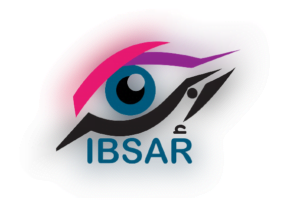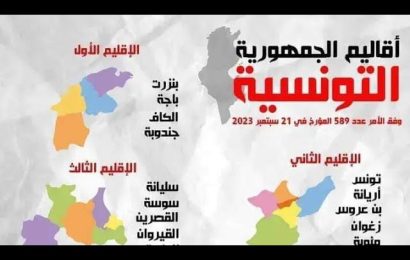INTRODUCTION
This report summarizes the main results of the field survey conducted in 7 governorates and all their delegations (108) in Tunisia as part of the Observatory 29-30 project of the International Convention on the Rights of Persons with Disabilities (CRPD). Based on an observation grid and field visits to 192 cultivation establishments(libraries and cultural centres). This survey made it possible to collect reliable data reflecting a rather difficult situation for people with disabilities and an ethical and legal duty for decision-makers at different levels of decision-making to promote access for these people to their rights and fight against different forms of discrimination that hinder their participation in social and cultural life.
In this report, we will try to present a first reading of the main results of the investigation while drawing inspiration from Article 30 of this convention and its general principles which will be clarified in the paragraphs that follow.
GENERAL FRAMEWORK
The International Convention on the Rights of Persons with Disabilities (CRPD) is based on several general principles which, although they recognize the evolving nature of the notion of disabilityand the diversity of people with disabilities, consider that disability results from the interaction between people with disabilities and the behavioural and environmental barriers that prevent their participation in social life on the same footing as other people. The promotion of the rights of disabled people, which should, according to this convention, take a primary place in sustainable development programs at the national, regional and international levels, has set itself the objective of, on the one hand, protecting them from any discrimination based on disability, considered in this convention as a negation of the dignity and value inherent in the human person and, on the other hand, to guarantee them the possibility of enjoying their rights and freedoms and of participating more actively in human development , social and economic of their societies and the elimination of poverty. In addition to these defining principles recognizing above all the importance of the rights of people with disabilities, the CRPD starts from several principles of action which delimit a certain base of values which can help in one way or another to define the nature of actions to be taken: (a) respect for the intrinsic dignity, individual autonomy, including the freedom to make one’s own choices, and independence of persons, b) non-discrimination, c) participation and full and effective integration into society, d) respect for difference and acceptance of people with disabilities aspart of human diversity and humanity, e) equal opportunities, f) accessibility, g) equality between men and women, h) respect for the development of the disabledchild’s abilities and respect for the right of children with disabilities to preserve their identity, are the principles on which this convention is based and should, therefore, be based on the actions to be taken to achieve the objectives mentioned therein. These actions, some of which can be designed within the framework of what the convention had called “reasonable accommodation” designating “the necessary and appropriate modifications and adjustments not imposing a disproportionate or undue burden made, depending on the needs in agiven situation, to ensure to persons with disabilities the enjoyment or exercise, on an equal basis with others, of all human rights and fundamental freedoms”, can alsobe undertaken by governments to combatagainst discrimination based on disability defined in this convention as being“any distinction, exclusion or restriction based on disability which has the object or effect of compromising or nullifying the recognition, enjoyment or exercise, on an equal basis with others, of all human rights and all fundamental freedoms in the political, economic, social, cultural, civil and other fields. Note in this regard that the definition of discrimination based on disability considers that the refusal of reasonable accommodation is also a form of discrimination. To this end, and to achieve inclusion, adequate public policies should be put in place to guarantee access for people with disabilities to all of their rights in general and their cultural and sporting rights. especially.
PARTICIPATION IN CULTURAL AND RECREATIONAL LIFE, LEISURE AND SPORTS ACCORDING TO ARTICLE 30 OF THE CRPD
The convention recognizes, in its article 30, the rights of persons with disabilities to participation in cultural life, in compliance with the general principles presented previously and urgesthe States parties to take appropriate measures that enable them to access cultural products in accessible formats, television broadcasts, films, plays and places of cultural activities such as theatres, museums, cinemas, libraries and tourist services.The same article emphasizes that “States Parties shall take appropriate measures to provide persons with disabilities with the opportunity to develop and realize their creative, artistic and intellectual potential, not only for their own benefit, but also for the enrichment of society” and recognizes the right of persons with disabilities, on an equal basis with others, to recognition and support of their specific cultural and linguistic identity, including sign languages and deaf culture.”The right to participate in recreational, leisure and sporting activities is recognized by the same article committing States Parties to encourage and promote this participation of people with disabilities at all levels.
METHODOLOGY AND STUDY POPULATION
Knowing that the main objective of this study is to establish an inventory of the current conditions for the participation of people with disabilities in cultural life and the exercise of their rights recognized in article 30 of the CRPD, this study is based on field work based on an observation grid carried out in 7 governorates covering almost the different regions of the country: The North, the Middle and the South.More precisely, these are the governorates of:Bizerte, Beja, Tunis, Nabeul, Monastir, Kairouan and Gabes. These are governorates with a high population density and where urban and rural areas coexist.
The data collection work was carried out during the period May – June 2023 and made it possible to reach 192 institutions including 108 cultural centres and 84 public libraries.
The field mission was based on a questionnaire containing all aspects relating to the infrastructure of cultural establishments in terms of accessibility, services provided and their staff in terms of qualification and profile as well as reasonable development measures.
PRINCIPLE RESULTS
The results of the fieldwork clearly show that people with disabilities encounter several types of difficulties in accessing their cultural rights and that the efforts made by state institutions to promote their participation in cultural life, as defined by the CRPD, are limited. Two fields of observation can thus be distinguished: accessibility to cultural institutions and services on the one hand,and reasonable accommodation allowing the exercise of cultural rights on the other hand.
- Accessibilities
Accessibility is a fundamental principle that the CRPD has considered as an essential condition to guarantee the exercise of rights in general. It includes not only the trips that disabled people must make in public places to exercise their rights but also the trips to be made before arriving at the desired establishments. Accessibility also includes access to services according to the abilities of each disabled person. The questionnaire for this survey was administered by local observers from the 29/30 observatory who benefit from the proximity and detailed knowledge of the local context of each delegation.
- Cultural centres
The accessibility of cultivation houses is reflected as follows:
Passage between the street and the building: 6%
Suitable door: 69%
Parking reserved for PWD: 6%
Indications and working hours: 57%
- Public libraries
Passage between the street and the building: 61%
Suitable door: 68%
Parking reserved for PWD: 4%
Indications and working hours: 75%
- Accessibility Assessments
Accessibility of the establishment according to the principle of autonomy
- Cultural centres
Difficult: 29%
Easy% 15%
- Public libraries
Difficult: 35%
Easy: 26%
- Reasonable accommodation measures
To guarantee accessibility to institutions
- Cultural centres
Respect of priority for PWD: 71%
Appropriate toilets: 2%
Suitable places: 4%
- Libraries
Respect for priority for PWD: 83%
Appropriate toilets: 6%
Suitable chairs: 3%
To guarantee accessibility to services
- Cultural centres
Auditory content to help the visually impaired: 1%
Posters and explanatory diagrams: 4%
Qualified reception agent: 62%
Places reserved for PWD: 6%
Braille documents: 0%
- Libraries
Auditory content to help the visually impaired: 7%
Posters and explanatory diagrams: 3%
Qualified reception agent: 60%
Places reserved for PWD: 7%
Braille documents: 5%
- Evaluation of reasonable accommodation measures
- Cultural centres
Compliance with website accessibility standards: 2%
Existence of agent responsible for PWD: 1%
Training of agents on the issue of Disability: 1%
Integration of PWDs into the staff: 1%
- Libraries
Compliance with website accessibility standards: 1%
Training of agents on the issue of Disability: 5%
Integration of PWDs into the staff: 5%
CONCLUSION
From the above, the following conclusions can be drawn:
-accessibility for cultural establishments, all categories combined, presents many dysfunctions, relating either to the absence of accessibility infrastructure or to the existence of works not respecting the standards and therefore becoming non-functional or subject to obstacles reducing their functionality. However, these obstacles are in most cases immobile (flower boxes, booth, etc.).
– the services of cultural establishments are mostly unsuitable for the needs of disabled people. As such, less than 1% of library funds are in Braille language and a very minimal portion ofmedia supportsare dedicated to this category of the population. The services offered in these establishments are not always provided by staff with the necessary skills to contact this category.
– staff working in these establishments lack opportunities for capacity building in the area of disability.
– The majority of these establishments do not generally have a website and digital accessibility is not guaranteed.




